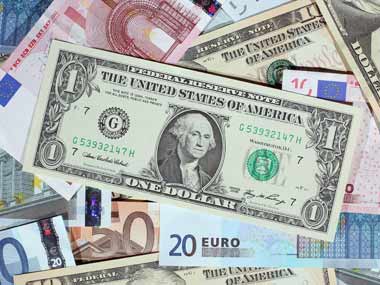Who’s afraid of investing in Indian stocks? Not foreign institutional investors (FIIs) surely, despite all the talk of policy paralysis and regulatory confusion.
Despite the fluid policy atmosphere and governance issues, FIIs show little signs of slowing their purchases of Indian stocks. A study of FII holdings in Indian companies shows FIIs invested $8.9 billion in the quarter ending March 2012, taking the total foreign holdings in Indian companies to its highest level since March 2009. Domestic institutions, on the other hand, were mostly sellers across sectors.
FIIs picked up stocks in companies across all sectors, with the sole exception of telecom, which is in the midst of a huge regulatory muddle. The study, conducted by HSBC, shows the amount invested in the quarter was the highest in the first quarter of any calendar year.
[caption id=“attachment_304139” align=“alignleft” width=“380” caption=“FIIs showed a preference for export-oriented sectors such as IT and healthcare. Reuters”]  [/caption]
The study shows that as per recent BSE 200 company filings, foreign investors increased their holdings in 128 companies while reducing their stake in the remaining 72 companies. FIIs owned 16.4 percent of the BSE 200 market capitalisation, representing 36.1 percent of the free-float market value. The BSE 200 companies represent more than 84 percent of the market value of Bombay Stock Exchange (BSE).
FIIs showed a preference for export-oriented sectors such as IT and healthcare. “Besides being pure currency depreciation plays, export-oriented sectors also help foreign investors reduce their currency risk across the board. FIIs’ ownership in these sectors was at a record high,” the study says. FIIs also backed the consumption theme - their net buying in consumer staples and discretionary was at a record high.
On the other hand, domestic institutional investors (DIIs) preferred to turn net sellers across most sectors during the quarter. The only exceptions were energy and industrials. This trend of turning sellers can, perhaps, be attributed to growing concerns about domestic economic fundamentals and heightened political risk.
According to recent BSE 200 company filings quoted by the HSBC study, domestic investors increased their holdings in only 63 companies while they reduced stake in the remaining 127 companies.
LIC-ONGC effect
One interesting element which comes through in the study of holdings is that while domestic investors have reduced their stakes in nine out of 10 energy companies, their overall stakes have gone up significantly because of Life Insurance Corporation’s (LIC) Rs 12,000 crore bailout of the Oil & Natural Gas Corp (ONGC) stake sale by the government. In fact, LIC also invested in several state-run banks to help them meet their capital requirements, as the government was strapped for cash. This led to a significant increase in domestic institutional investor (DII) ownership.
The consumer story also sees FIIs and DIIs showing starkly dissimilar trends. DII ownership in consumer staples and discretionary stocks was at its lowest level since March 2005. By contrast, foreign ownership of these stocks was at a record-high level. Eighteen out of 24 consumer discretionary and 11 out of 13 consumer staples saw net selling by DIIs, the study said.


)
)
)
)
)
)
)
)
)



